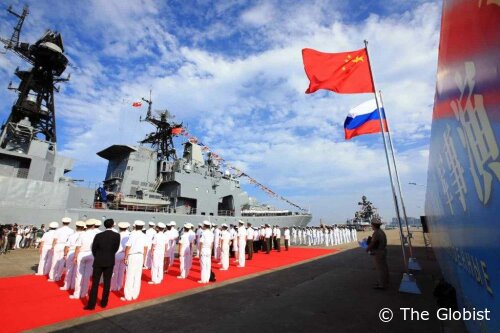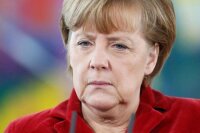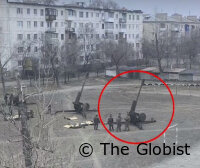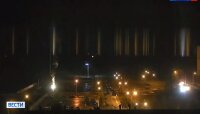Russia's Vostok-2018 Exercise is About a Lot More Than War With NATO

Russia’s large-scale forthcoming exercise will demonstrate the country’s growing military capabilities. But there is also an element of theatre in this exercise.
Russia is preparing for its largest military exercises since 1981, to be held from 11-15 September. Russian Defence Minister Sergei Shoigu announced on 28 August that the Vostok-2018 exercises would involve around 300,000 personnel and include contingents from China and Mongolia.
Vostok-2018 is clearly designed to test the Russian military’s ability to coordinate its forces in the context of a war with NATO. Maria Zakharova,– spokeswoman at Russia’s Ministry of Foreign Affairs, characterised Russian policy on 30 August as a response to ‘[t]he number of massive and wide-scale drills conducted along our borders’, arguing that ‘the military exercises of the NATO joined forces… [are] to conduct defensive and, what is crucially important, offensive operations at northern latitudes during “high-intensity” conflict with an equal enemy’.But the scale of Vostok-2018 is likely overstated, and the exercises serve a wider range of purposes.
International reporting paid close attention to comments by Russian President Vladimir Putin’s spokesman Dmitry Peskov, who argued the exercises were ‘justified’ in ‘the current international situation’. Most reports, however, excluded crucial context from Peskov’s remarks, which were preceded by the observation that although ‘the social security network and the pension system are a constant element of state policy’, the expense of the exercises was justified.
The Kremlin’s decision to raise the pension age from 60 to 65 for men and from 55 to 60 for women, in a country where male life expectancy is just 66, has sparked protests, and seen Putin’s usually robust popularity drop from 80% to 67%. Given this drop in popularity, the Kremlin is eager to demonstrate that expenditure on the armed forces has yielded results.
Putin’s narrative for the past decade has been that hardship is necessary in the short term, enabling the resurrection of Russia as a great power. The demonstration that Russia can conduct exercises at a scale comparable to the Soviet Union is presented as proof that the privations of recent years have allowed genuine and substantial progress in revitalising Russia’s military.
Yet it is important not to exaggerate the significance of Vostok-2018. Many of the preliminary exercises have comprised routine Russian military drills, such as an annual sub hunt nearNovorossiysk, some cruise missile and torpedo drills in the Sea of Okhotsk, and some less than convincing anti-cruise missile exercises in Tajikistan. The mobilisation of obsolete equipment is more theatre than threat.
Vostok-2018 nevertheless underscores Russia’s growing military ambitions. An exercise at this scale, while not fully replicating the uncertainties of war, will severely test the Russian military’s logistics and command and control infrastructure. Exercises by the 1st Guards Tank Army, preparatory work by engineers for assaults over water obstacles in Abkhazia, and an array of artillery drills have emphasised close collaboration between electronic warfare, reconnaissance, engineers, armoured and artillery units operating in an offensive capacity.
For several years NATO observers tracing the restructuring of the Russian military have been concerned about the offensive doctrine and range of capabilities being developed. The conduct of such a wide array of complex manoeuvres in Vostok-2018 appears to be an attempt to embed operational experiences from Syria across the wider Russian military, in preparation for either a conflict in Europe or a mobilisation following the outbreak of war on the Korean Peninsula.
Practice is essential in mass mobilisation; back in 1980 when the Soviet military attempted to mobilise for intervention in Poland, units ended up in the wrong locations, without appropriate equipment for the winter, leading to widespread desertions.
But Vostok-2018 is not just relevant to a major war. The exercises emphasise close collaboration between ground and air units as well as the use of specialist units in mixed formations, skill sets that are invaluable in the kind of expeditionary warfare that has for decades been the preserve of NATO. Many of the specific drills in the preliminary stages of Vostok-2018 have replicated fighting insurgents, and with Russia heavily engaged in Syria and seeking further involvement in Africa, including Eritrea and the Central African Republic, these exercises are valuable in preparing for a more assertive foreign policy.
This latter point also applies to China. Despite tensions in military cooperation, Vostok-2018 provides an opportunity to demonstrate the growing ties between Moscow and Beijing. China’s participation is not just a political statement, however. Over the last decade the People’s Liberation Army have been restructuring their large conventional land forces from inflexible divisional formations to more agile brigade-level groups integrating air, armoured, artillery and special forces. It is just such a group, of around 3,200 personnel, which China has sent to participate in Vostok-2018, and Beijing has expressed an interest in learning from Russia’s experiences in Syria.
It is also notable that the Chinese contingent of 30 fixed and rotor-wing aircraft is comparable to the deployable forces from China’s aircraft carrier. Combined with China’s growing military presence in Djibouti, expanding security relationships in the Gulf, and desire to project forces into the South China Sea, Vostok-2018 presents valuable opportunities for the Chinese military to refine its expeditionary logistics in support of an assertive foreign policy.
The key question is not whether Russia will launch a war against NATO, but where Russia – and China for that matter – aims to utilise their burgeoning capacity for expeditionary logistics and combined operations to project power.
Jack Watling, Commentary









